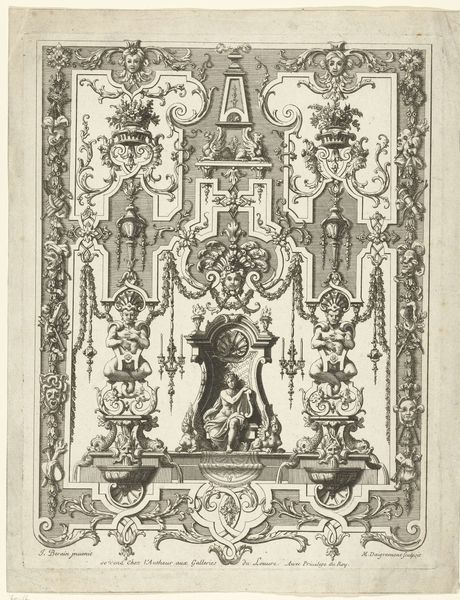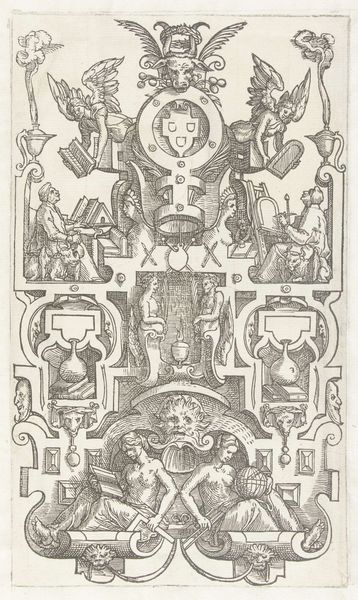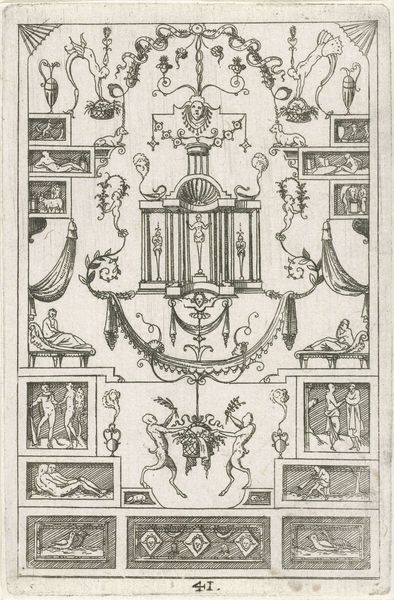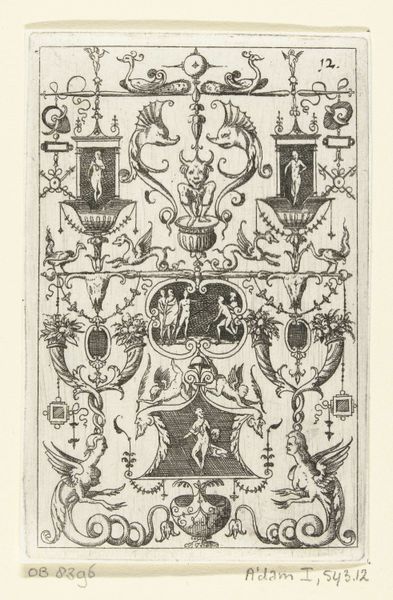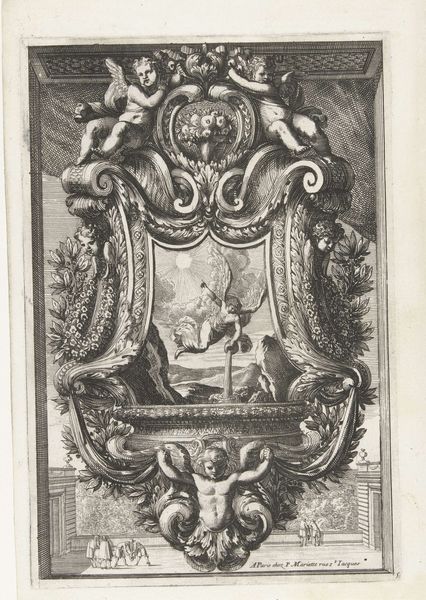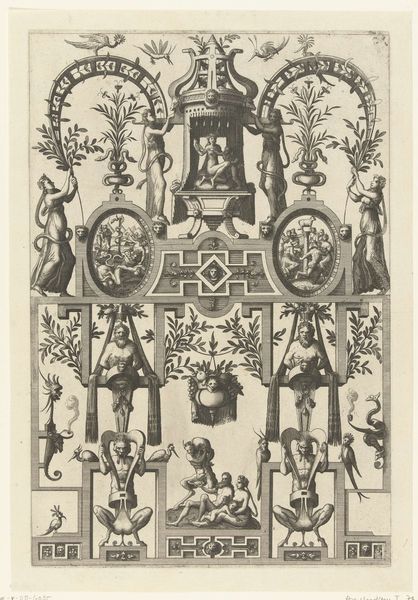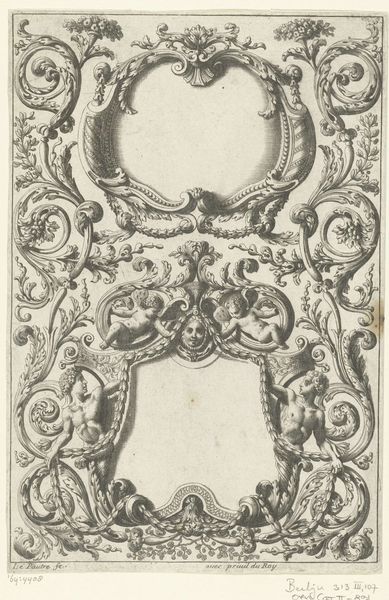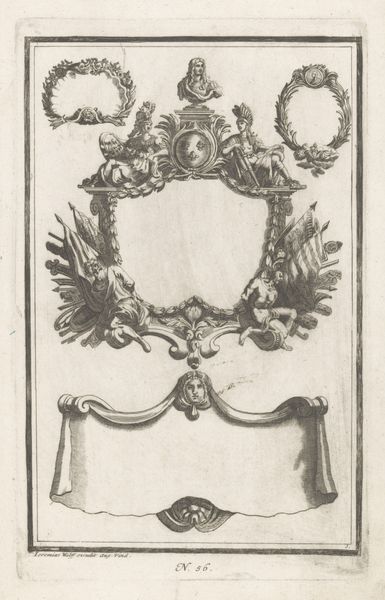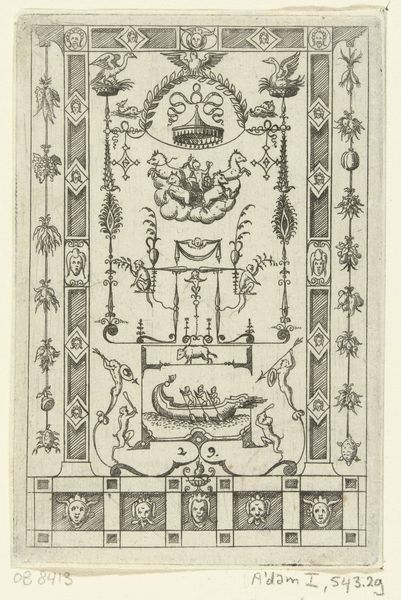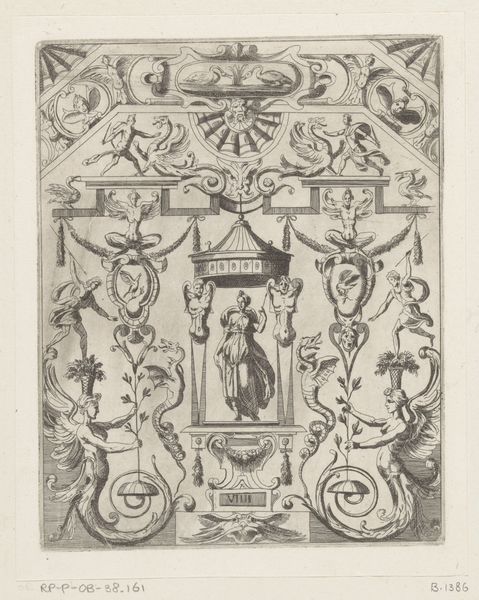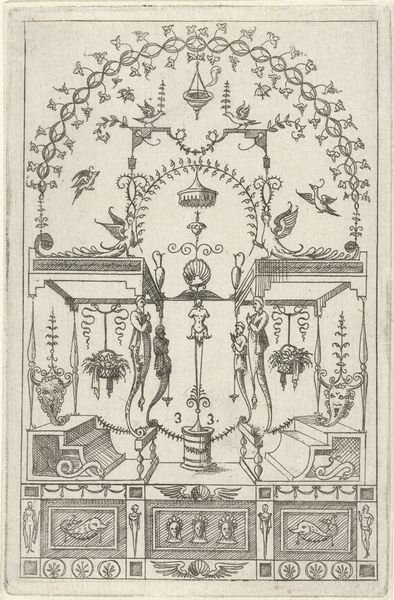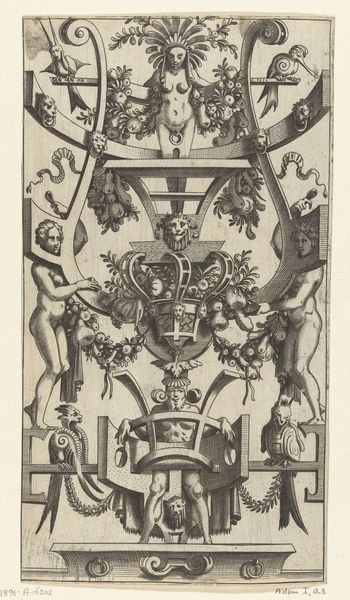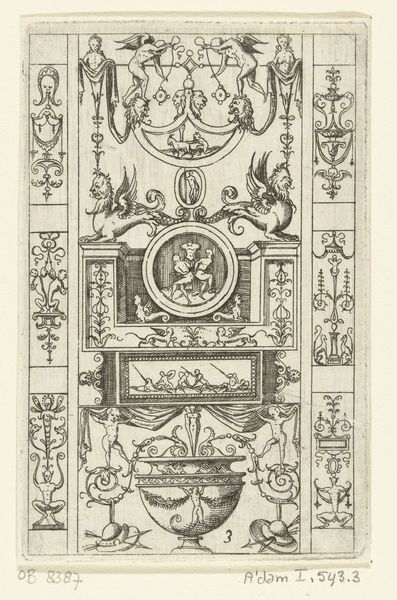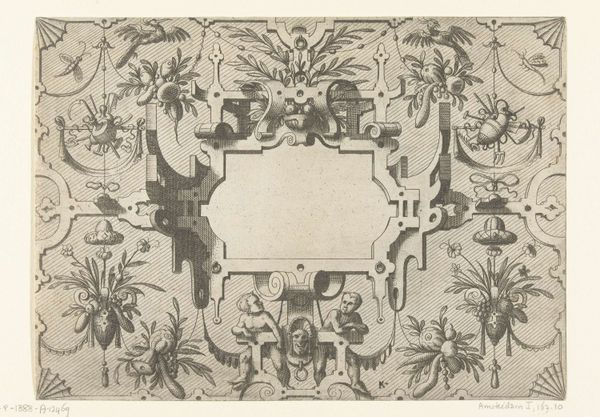
Cartouche in een omlijsting van rolwerk met grotesken c. 1555 - 1560
0:00
0:00
johannesoflucasvandoetechum
Rijksmuseum
drawing, graphic-art, ornament, print, engraving
#
drawing
#
graphic-art
#
ornament
#
allegory
#
pen drawing
# print
#
pen illustration
#
pen sketch
#
old engraving style
#
form
#
11_renaissance
#
personal sketchbook
#
geometric
#
pen-ink sketch
#
pen work
#
sketchbook drawing
#
sketchbook art
#
engraving
#
doodle art
Dimensions: height 210 mm, width 153 mm
Copyright: Rijks Museum: Open Domain
This ornamental panel was etched by Johannes and Lucas van Doetechum. It features a cartouche, a frame for text or image, surrounded by grotesque figures. The making of an etching begins with a metal plate, likely copper. The artist coats the plate with a waxy, acid-resistant ground, then draws their design through this ground, exposing the metal. The plate is then immersed in acid, which bites into the exposed lines, creating grooves. Ink is applied to the plate, filling these grooves, and the surface is wiped clean. Finally, paper is pressed against the plate, transferring the ink and creating the print. The fine, precise lines achieved through etching allowed for intricate details, seen here in the fantastical figures and elaborate scrollwork. The process also allowed for the relatively easy reproduction and dissemination of designs. This was essential in the 16th century, a time of expanding trade and the rise of a merchant class eager for decorative prints like this. The print acted as a template for craftsmen to replicate in other materials and art forms. Etchings like this one played a crucial role in shaping visual culture, influencing everything from furniture design to ceramics. The making and distribution of these prints demonstrate the fusion of artistry, craft, and commerce that defined the period.
Comments
No comments
Be the first to comment and join the conversation on the ultimate creative platform.
